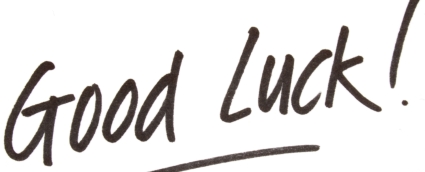Years ago, when I first started writing, I was more worried about seeing my name in print than I was about getting paid for my work. So, like many other “new” authors, I threw just about everything against the wall while I fulfilled my real life obligations. Would a part-time job pay my rent while I wrote at night? What about a full-time job as a writer? Or how about a volunteer position where I can write to build up my resume? What shortcuts did I need to take to see my name in print?
 If you’ve ever been in the “I need to pay rent and I don’t like junk food” place that I’ve been in before, you’ve probably had these same discussions with yourself. Then, when any and all forms of writing assignments start piling in, you get excited because dammit, you’re a writer. Did it matter you just worked for three weeks on an article and didn’t get paid for it? Did it matter you don’t own the rights to what you just wrote? No. What mattered is that you wrote and got published, so you start to let a lot of things slide.
If you’ve ever been in the “I need to pay rent and I don’t like junk food” place that I’ve been in before, you’ve probably had these same discussions with yourself. Then, when any and all forms of writing assignments start piling in, you get excited because dammit, you’re a writer. Did it matter you just worked for three weeks on an article and didn’t get paid for it? Did it matter you don’t own the rights to what you just wrote? No. What mattered is that you wrote and got published, so you start to let a lot of things slide.
Then, at some point, you wake up and you smell burnt coffee. You get burned. Badly. Someone republishes your work and scrapes your name off the credits and expects you to shove your angst under the rug. A partner manages to “forget” you signed a contract and drops off the face of the planet, so you never get paid for weeks of effort. The story you handed in is different from the story that got published and you were never notified. An editor lost your manuscript. The pitch you handed in years ago is now a multimillion dollar book and no one believes it was your idea. The list of crimes against writers goes on and on and on.
Here’s a tough question for you: Would you quit a job if your boss was being an asshole? Then why on earth would you allow yourself or your work to be treated like crap?
Quite frankly, the cost of making bad decisions is a lot higher than you might think because writers are not paid according to the time and knowledge required for a polished manuscript. Not only is your name and your reputation attached to whatever it is that you’re doing, the time that you spend dealing with crappy projects means that you’re losing money because you’re spending less time on the projects that have a better chance of succeeding. When you’re new to writing, it’s great to experiment so you can find out where your strengths and weaknesses are. But what happens when you’re no longer new? Have you thought about turning down projects you don’t want?
Now, some of you might think that there should be some sort of database out there to pinpoint who the assholes are. However, that is not a professional thing to do because while you may have had a crappy experience with one publisher, a different writer may have had a great one. Yes, patterns can develop, but every situation is usually different because there are two sides to every story. You may be pissed off that you didn’t get paid, but the company could have been filing for bankruptcy, experienced personnel changes or has a policy against paying for delivered work past the deadline you were supposed to meet. Remember, too, there are cases where bad things happen not because a publisher is an evil bastard, but because you’ve experienced a breakdown in your communication with them. That last bit is part of the reason why I believe good, two-way communication is so essential to any writer’s overall success.
So what happens when you get burned? Well, first you have to rant about it in private. (Yes, you really do!) While you’re at it, order a very large margarita, go for a run or play a game. Then, at some point you have to learn when to cut your losses and move on.
In my mind, I don’t believe enough writers ask themselves why they are working on projects that they’ve committed themselves to. To those of you who haven’t gotten paid for your work yet, I understand what you’re going through. You’re hungry to get their name out there. I get that. I really, really do. If you are happy blogging or writing fan fiction and now you’ve got a ton of readers then that’s great! Are you happy writing for free or do you want your readers to pay you? Have you ever asked yourself how much you want to get paid? Are you being realistic with those expectations? Do you know what writing you can get paid for versus what writing you can’t?
The quick response to these types of questions is to say something like, “Well, so-and-so author ended up making millions by bucking the traditional system this way…” While that is true, those experiences are not typical for most writers. What I’m trying to convey in this post, are the questions the rest of us need to ask ourselves. Lightning can strike, but I wouldn’t bank my career on it. Would you?

 If you’ve ever been in the “I need to pay rent and I don’t like junk food” place that I’ve been in before, you’ve probably had these same discussions with yourself. Then, when any and all forms of writing assignments start piling in, you get excited because dammit, you’re a writer. Did it matter you just worked for three weeks on an article and didn’t get paid for it? Did it matter you don’t own the rights to what you just wrote? No. What mattered is that you wrote and got published, so you start to let a lot of things slide.
If you’ve ever been in the “I need to pay rent and I don’t like junk food” place that I’ve been in before, you’ve probably had these same discussions with yourself. Then, when any and all forms of writing assignments start piling in, you get excited because dammit, you’re a writer. Did it matter you just worked for three weeks on an article and didn’t get paid for it? Did it matter you don’t own the rights to what you just wrote? No. What mattered is that you wrote and got published, so you start to let a lot of things slide. Three Tips For Getting Published from BubbleCow
Three Tips For Getting Published from BubbleCow